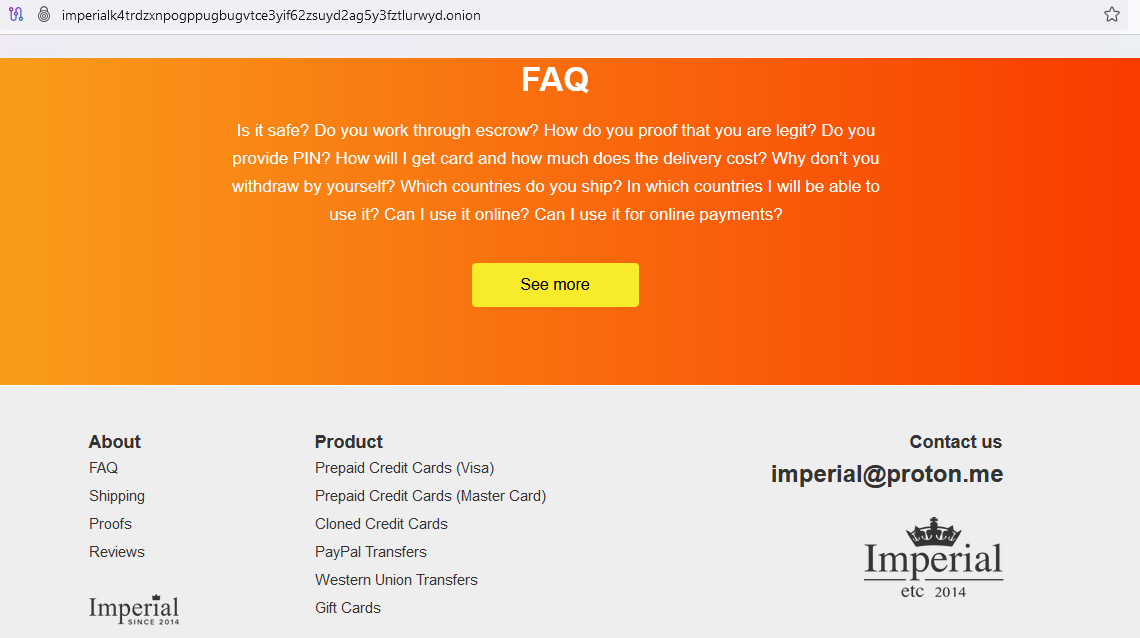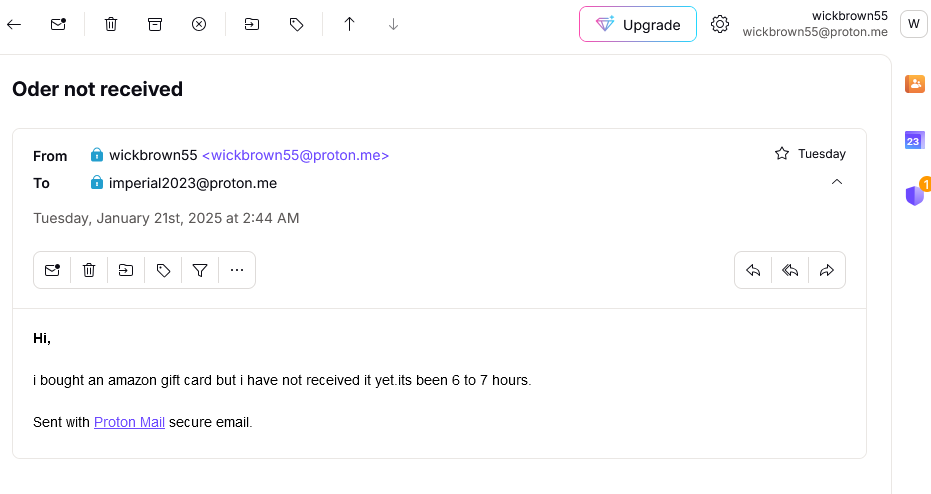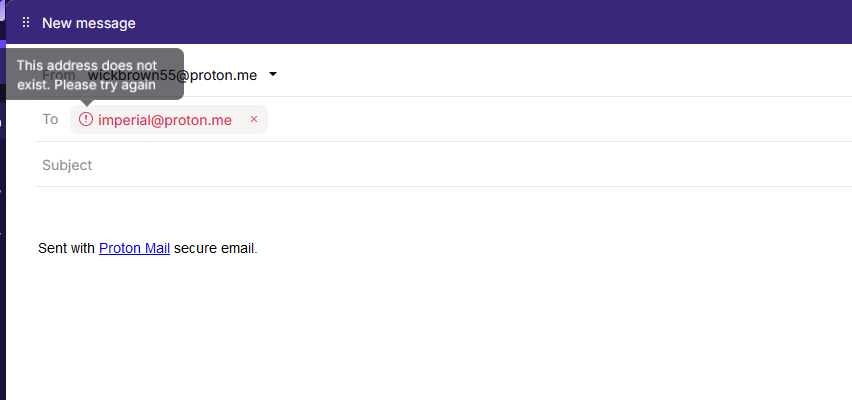Table of Contents
ToggleImperial Market – TOR Scam Report (132)
Onion Link : http://imperialk4trdzxnpogppugbugvtce3yif62zsuyd2ag5y3fztlurwyd.onion
Scam Report Date : 2025-01-25
Client Scam Report Breakdown
Original Scam Report :
The client reported being scammed by an online website that sells Amazon gift cards. According to their account, they purchased a gift card but never received it via email, as promised. Efforts to reach out to the company were unsuccessful. Additionally, the client highlighted that the website advertises itself through banners on deep web platforms such as Tor66 and Torch. They urged that this website be added to the scam list to prevent others from falling victim to the same fraudulent activity.
Photos :

Terminology and Definitions
- Amazon Gift Card: A digital or physical prepaid card that can be used to purchase items from Amazon’s platform. Scammers often exploit the popularity and legitimacy of Amazon gift cards as a front for fraudulent schemes. In this case, the client paid for a digital gift card but did not receive the promised code via email.
- ProtonMail: A secure, privacy-focused email provider often used for anonymity. The scammer used two ProtonMail addresses: one (“[email protected]“) listed on the website that doesn’t exist, and another (“[email protected]“) for sending order confirmations, likely to appear professional and trustworthy. This tactic makes it difficult for victims to trace or communicate with the scammers.
- Deep Web Platforms (Tor66 and Torch): These are search engines or directories on the Tor network, often used to advertise anonymous or illicit services. The client noted the website’s ads appeared on Tor66 and Torch, which may suggest that the scam operation targets users who frequent these platforms. These ads serve as a gateway to attract potential victims under the guise of a legitimate service.
Analysis and Recommendations
This case demonstrates several hallmarks of online fraud. First, the use of ProtonMail accounts and deep web advertising points to a deliberate attempt by the perpetrators to remain anonymous and evade detection. The fraudulent website’s use of a non-existent support email further isolates victims by preventing any meaningful communication. This tactic is a classic scam design, leaving the victim with no recourse once they have paid.
To address and prevent such scams, the following measures are recommended:
- Blacklist the Website: Adding the reported website to scam databases and online watchdog lists, as the client suggested, will help warn others.
- Raise Awareness: Users need to be cautious when engaging with online services, especially those advertised on deep web platforms. Legitimate businesses typically have functioning customer support emails and transparent policies.
- Report the Ads: Relevant authorities or forums monitoring the Tor network should be alerted to the presence of these scam ads. This could deter other potential victims from engaging with the fraudulent website.
By dissecting this incident, it becomes clear that the scammers exploited a combination of anonymity tools and deceptive advertising strategies. Public awareness and prompt reporting are crucial steps in mitigating the impact of such fraudulent activities.










